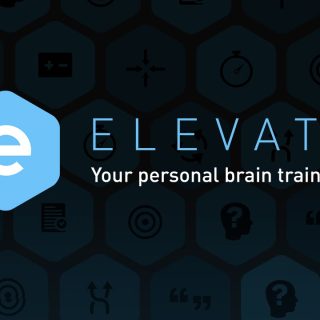Comprehensive Career Guidance in the Education Industry Introduction
Introduction
In the intricate tapestry of education, career guidance stands as a guiding light, illuminating the diverse pathways that students can embark upon after their formal education. Career guidance in the education industry is not merely about helping students choose a profession; it’s about empowering them with self-awareness, skills, and confidence to navigate the complexities of the modern job market. This expansive article embarks on a comprehensive exploration of career guidance in the education sector, delving into its historical evolution, the methodologies employed, challenges faced, and innovative approaches that are shaping the future of career counseling. From understanding individual strengths to embracing emerging career fields, this exploration aims to provide a deep understanding of how career guidance is transforming the educational landscape, preparing students for success in the 21st century.

I. Historical Evolution of Career Guidance
A. Origins of Career Counseling
The roots of career counseling can be traced back to the early 20th century. This section delves into the historical origins of career guidance, exploring influential figures such as Frank Parsons and their contributions to the establishment of vocational guidance principles. It also examines how career guidance has evolved from its early vocational focus to encompass a broader range of professions and skills.
B. Development of Career Counseling Theories
Over the years, various theories have shaped the practice of career counseling. This part explores seminal theories such as Holland’s RIASEC model, Super’s Developmental Theory, and Bandura’s Social Cognitive Career Theory, discussing their impact on career guidance methodologies and their relevance in the modern context.
II. The Role of Educational Institutions in Career Guidance
A. School-Based Career Guidance Programs
Educational institutions play a crucial role in providing career guidance to students. This section explores school-based career guidance programs, discussing how schools integrate career education into the curriculum, offer aptitude assessments, and organize career fairs to expose students to diverse career options.
B. College and University Career Centers
Higher education institutions often have dedicated career centers to assist students in their career pursuits. This part examines the services provided by college and university career centers, including resume writing workshops, interview preparation, and alumni networking events, highlighting their impact on students’ post-graduate success.

III. Methodologies and Approaches in Career Guidance
A. Self-Assessment Tools and Personality Tests
Self-assessment tools and personality tests are foundational in career guidance. This section explores popular assessments such as the Myers-Briggs Type Indicator (MBTI) and StrengthsFinder, discussing how these tools help students identify their strengths, interests, and values, guiding them towards compatible career paths.
B. Career Exploration Workshops and Internships
Hands-on experiences play a vital role in career exploration. This part discusses career exploration workshops and internships, exploring how these opportunities provide students with real-world insights into various professions, helping them make informed decisions about their future careers.
C. Mentorship Programs and Networking Events
Mentorship programs and networking events create valuable connections between students and professionals. This section examines the benefits of mentorship, discussing how experienced professionals guide students, offer career advice, and provide valuable industry insights, enhancing students’ understanding of their chosen fields.
IV. Challenges and Ethical Considerations in Career Guidance
A. Challenges in Career Counseling
Career guidance faces various challenges, including changing job markets, technological advancements, and the need for continuous skill development. This segment explores these challenges, discussing how career counselors adapt their strategies to address the evolving needs of students and the job market.
B. Ethical Considerations in Career Counseling
Ethical considerations are paramount in career counseling, especially concerning issues like confidentiality, unbiased guidance, and informed decision-making. This part examines the ethical dilemmas faced by career counselors, discussing the ethical principles that guide their practice and the importance of maintaining trust and integrity in their interactions with students.

V. Innovative Approaches and Emerging Trends
A. Technology-Driven Career Guidance Platforms
Technology has revolutionized career guidance, giving rise to online platforms and applications that offer personalized career advice. This section explores technology-driven career guidance platforms, discussing virtual career counseling sessions, AI-driven assessments, and interactive tools that enhance students’ engagement and learning experience.
B. Career Guidance in Emerging Fields
As the job market evolves, new and unconventional career paths emerge. This part explores career guidance in emerging fields such as artificial intelligence, renewable energy, and digital marketing. It discusses how career counselors help students navigate these innovative fields, emphasizing the importance of adaptability and continuous learning.
C. Global Perspectives on Career Guidance
Career guidance practices vary across cultures and regions. This section provides a global overview of career counseling approaches, exploring how different countries address the unique needs of their students. It discusses successful models from countries like Finland, Singapore, and the United States, highlighting the best practices that can be adapted worldwide.
VI. The Future of Career Guidance
A. Lifelong Career Development
Career guidance is no longer limited to the early stages of education; it is a lifelong process. This part discusses the concept of lifelong career development, emphasizing the importance of continuous skill enhancement, career transitions, and the role of career counselors in supporting individuals at every stage of their professional journey.
B. Holistic and Inclusive Career Guidance
Holistic and inclusive career guidance considers individual differences and diverse backgrounds. This section explores the importance of inclusivity in career counseling, discussing how counselors address the needs of students with disabilities, LGBTQ+ students, and individuals from underprivileged backgrounds, ensuring equal access to opportunities and resources.
C. The Role of Career Counselors in Mental Health Support
Career decisions are often intertwined with mental health and well-being. This part examines the role of career counselors in mental health support, discussing how they address students’ anxieties, fears, and uncertainties related to their future careers. It emphasizes the importance of empathy, active listening, and a holistic approach to supporting students’ mental and emotional health.

Conclusion
Career guidance in the education industry is a transformative force, shaping the future workforce and empowering individuals to achieve their aspirations. Through a combination of historical knowledge, innovative methodologies, ethical considerations, and a global perspective, career guidance professionals play a pivotal role in guiding students towards fulfilling and meaningful careers. As the world continues to evolve, career counselors remain at the forefront of educational initiatives, ensuring that students are not only prepared for the job market but also equipped with the resilience, adaptability, and self-awareness necessary to thrive in a rapidly changing professional landscape. Nurturing talent, fostering inclusivity, and embracing emerging trends, the field of career guidance in the education industry remains an essential cornerstone in building a skilled, confident, and future-ready workforce.








